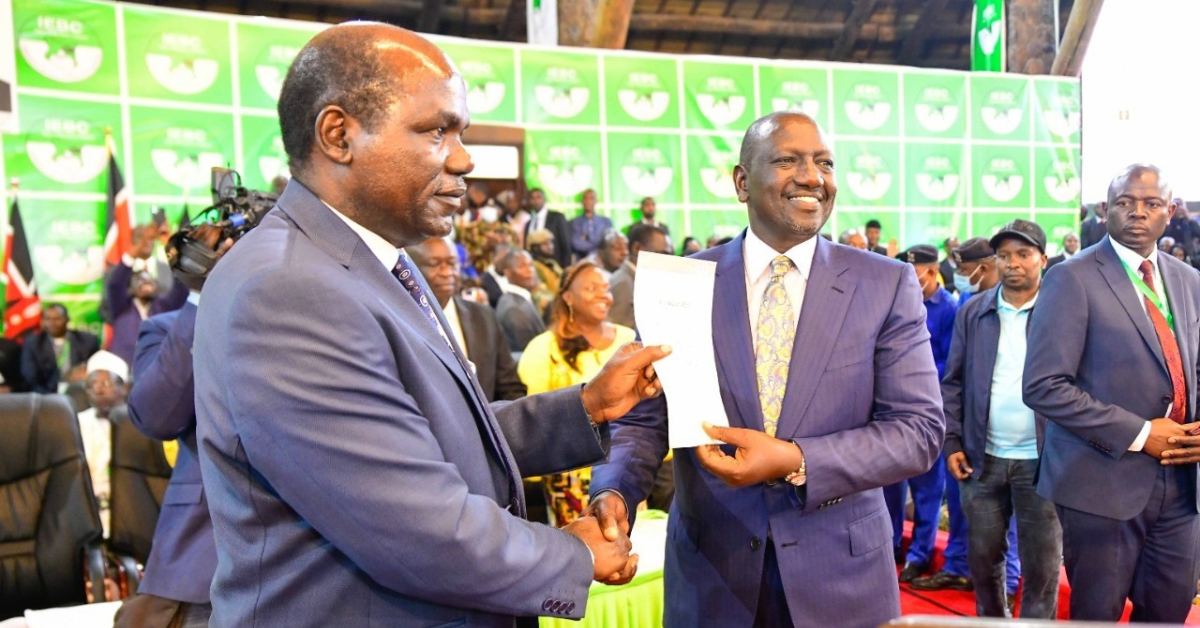If Ngong Road could speak, it would, as I found out the other day, speak the language of pots, politics and paradox. Here is the little story –a microcosm, and hopefully a parable of life in Kenya today.
But first, about Ngong Road. It starts off where Kenyatta Avenue and Valley Road meet and snakes its way in a south-westerly direction all the way to Ngong Town. It must be one of the longest roads in Nairobi. As you head out of the city on this road, a key feature on either side of it is the parade of small, mostly informal, businesses fighting for space, attention and the shilling with the big boys. The most exciting for me is the stretch of road between Dagoreti Corner junction and the Lenana School turn-off. Here you will find Kenyan Jua Kali creativity at its most beautiful.
Those who have used this road over the years will have noticed the increasing sophistication in the design and artistry of the clay pots and furniture.
Last week-end I spend part of my time with Mr. Githirwa, a pottery dealer on Ngong Road whom I have known for years. I consider him a friend. Now 29, Githirwa has been in the business for about ten years. Starting as a freelance pottery artist, he now owns a patch of road-reserve ‘real estate’ on which he paints and displays his pots.
As Githirwa and I discussed the latest pot designs and art work, a Nairobi City Council vehicle pulled up. Two muscular men walked out and headed straight to us. Githirwa looked at them as they approached. I looked at him. His eyes were more weary than wary.
“Hey kijana. Fanya fanya. Haraka.” (Hey, young man, do the needful. Hurry.)
Githirwa pulled out his wallet, took out some money and gave it to the one barking the orders. They took the money and off they went. I saw them approach their next victim, a woman selling potted plants.
I turned to look at my friend, Githirwa. He had resumed his decorative artwork on one of the pots.
When I asked Githirwa what the money was for and why he did not insist on a receipt, he looked at me with a raised eye-brow but did not answer immediately. But I understood the unasked question “Which planet does this imbecile come from?”
When he did finally speak, the words came out in a flood.
“It has always been like this. They always come to demand money every week for what they say is permission to use the road reserve. When I once demanded a receipt, they arrested me and threatened to charge me with dumping and trading without a business permit. I don’t even know if these people are from Kanjo (City Hall) because they are not always the same people. Sisi wadogo kweli hatuna haki. We small people truly have no rights.”
“What do you think should be done to change the situation?” I asked him
“We need serious and committed leaders; leaders who will protect the rights of the small person. We need a leader that will end corruption in this country. Did you hear about the fake cop in Nakuru? We need someone who can stop this. And by the way, I am not even sure if the person who comes to demand money from me is a real or a fake Kanjo employee.” He was getting heated up.
I asked the question differently. I wanted to know which presidential candidate he was going to vote for and why. “I will vote for Uhuru Kenyatta because everyone in Dagoretti where I come from will vote for him.”
Jarring food for thought.
My friend Githirwa, a man with gifted hands and a creative mind, cannot provide a reasoned answer when it comes to his choice of the leader of the country. Now we understand what Saint Thomas Aquinas meant when he said, “A man has free choice to the extent that he is rational.” We also now understand why irrationality is hardwired into the core of our beings: we are, as recent advances in neuroscience have confirmed, more emotional than rational.
And therein lies the paradox. We rationally crave for change but we act irrationally in our political choices. A pity really because it means the exciting informal businesses such as Githirwa’s may never get the support that they deserve in order to grow and diversify.
According to the 2012 Economic Survey, the small and medium enterprises sector’s contribution to Kenya’s Gross Domestic Product and employment is around 25% and 75% respectively. The potential is vast if only the government would get serious about supporting this sector with the right mix of policy and legislative tools.
But we must first confront the daunting task of convincing my friend Githirwa to act less emotionally on March 4.

